Some believe that the current escalation between Russia and the West is just a personal decision of Putin. Not quite. Watch this Yeltsin's speech in Beijing in 1999 before meeting Li Peng. Three weeks later Yeltsin abdicated, leaving the PM Putin as the acting President of Russia
Many in Russia presumed that "good" Yeltsin made a horrible mistake, accidentally appointing "bad" Putin as his successor. I don't believe that. Three last Yeltsin's PMs were all career intelligence officers. He was actively looking for such an heir and was vetting the candidates 
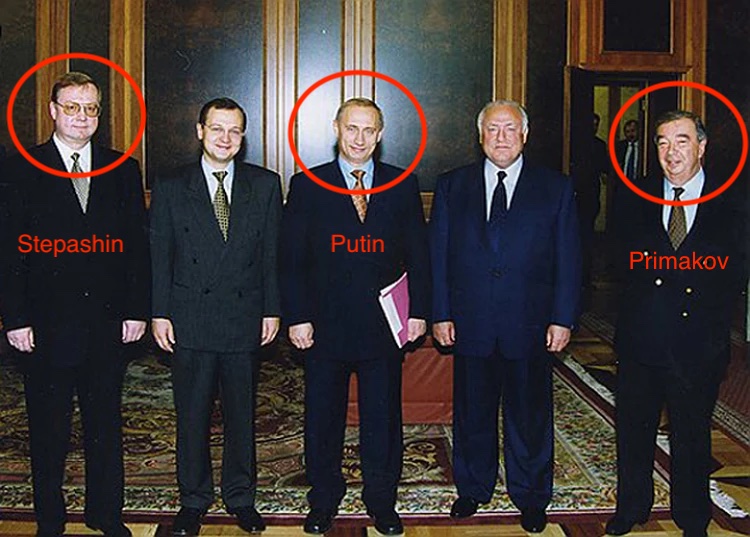
Putin's track was kinda typical. Consider his predecessor Stepashin. The FSB Chief. Then Minister for Internal Affairs under Kirienko. Then the Prime Minister. It's a track very similar to Putin's except in the end the Tsar made a different choice. Poor Stepashin (on the right) 
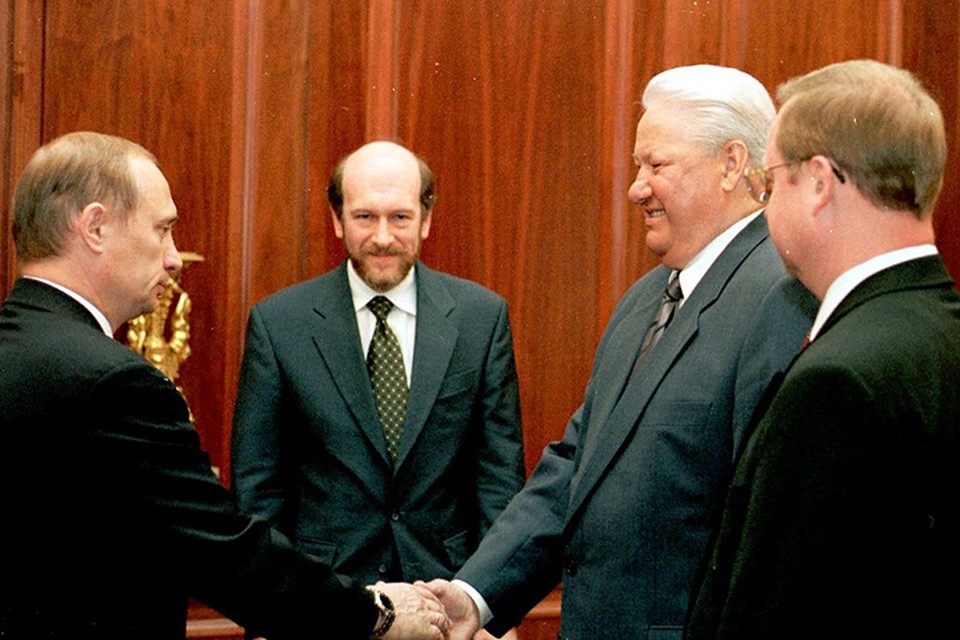
Would Stepashin be any different? Doubt. In this interview he basically admits that in 1991 when the KGB was under a risk of dissolution he preserved the state security intact
"State security should not be politicised"
Well, that's a political statement
kommersant.ru/doc/4850190
"State security should not be politicised"
Well, that's a political statement
kommersant.ru/doc/4850190

Conclusion:
The problem is not in Putin. The problem is not in Yeltsin making a wrong choice (he knew perfectly well what choice he was doing). The problem is in Tsar's uncontested right to just appoint an heir at his own discretion
The Tsar's power is the real problem here
The problem is not in Putin. The problem is not in Yeltsin making a wrong choice (he knew perfectly well what choice he was doing). The problem is in Tsar's uncontested right to just appoint an heir at his own discretion
The Tsar's power is the real problem here
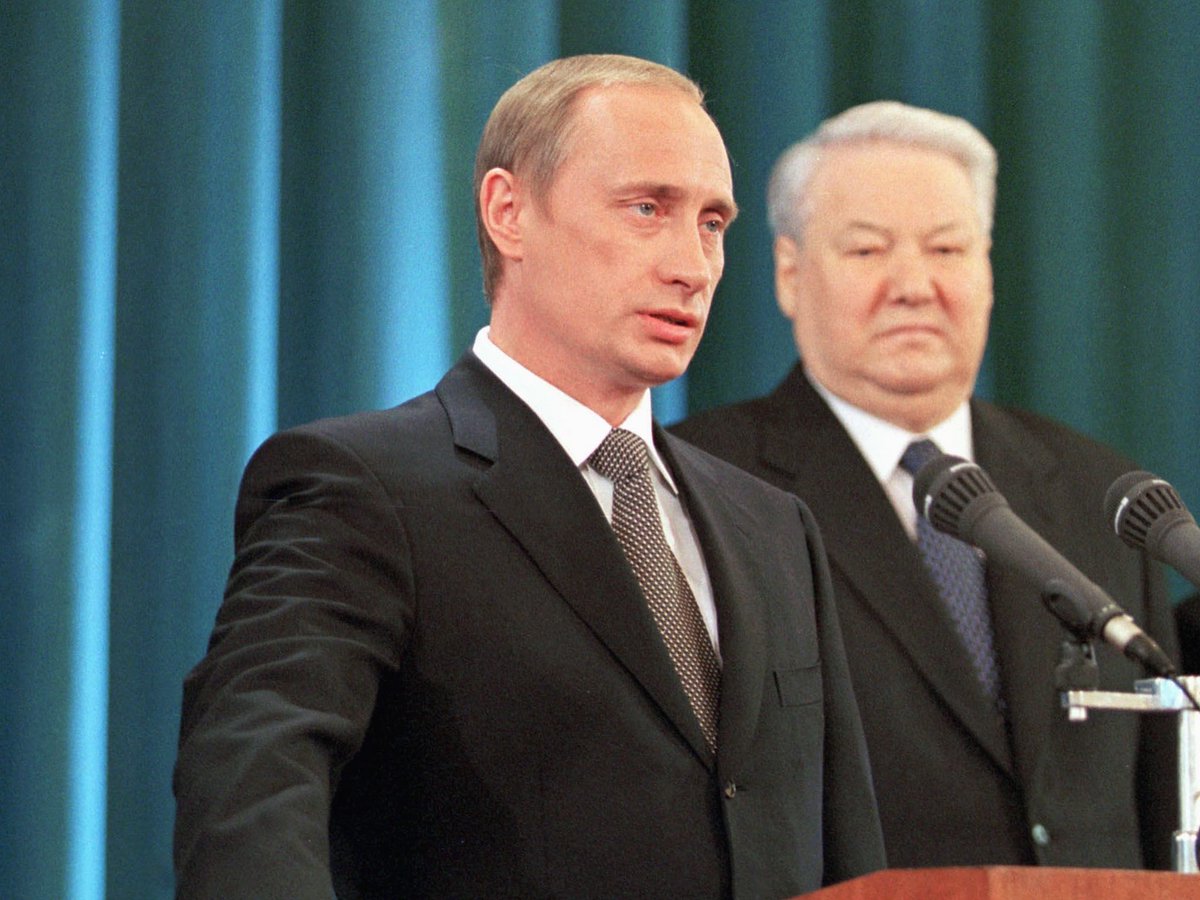
It's also wrong to paint Putin as some sort of dark & powerful personality who just submitted everyone to his will. Watch this interview upon his appointment President's Property Management Service in 1996. Humble, shy. Proud of his acquaintanceship with Chubais and Berezovsky
Putin's badass image is not based on his personality. It's based on his position. It's based on him being the Tsar in a political system that grants the unconstrained power to the Tsar 

The foundation of Putin's power is the quasimonarchic political culture which is very common in Russia and absolutely dominant among the central political elite, the courtiers. This culture is well reflected in the language. Consider this famous quote by Matvienko 
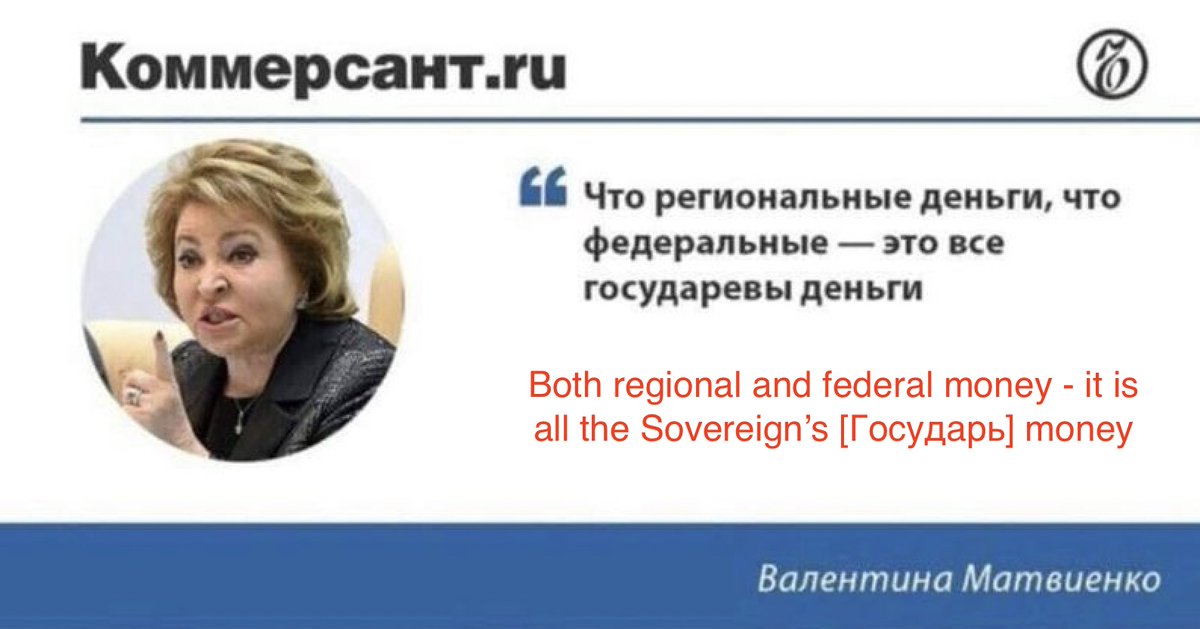
Or the answer of Miller, CEO of Gazprom to a journalist's question on whether his contract gonna be renewed:
"I am a Sovereign's [государев] человек. If I am offered to stay on my job, I'll stay"
"I am a Sovereign's [государев] человек. If I am offered to stay on my job, I'll stay"
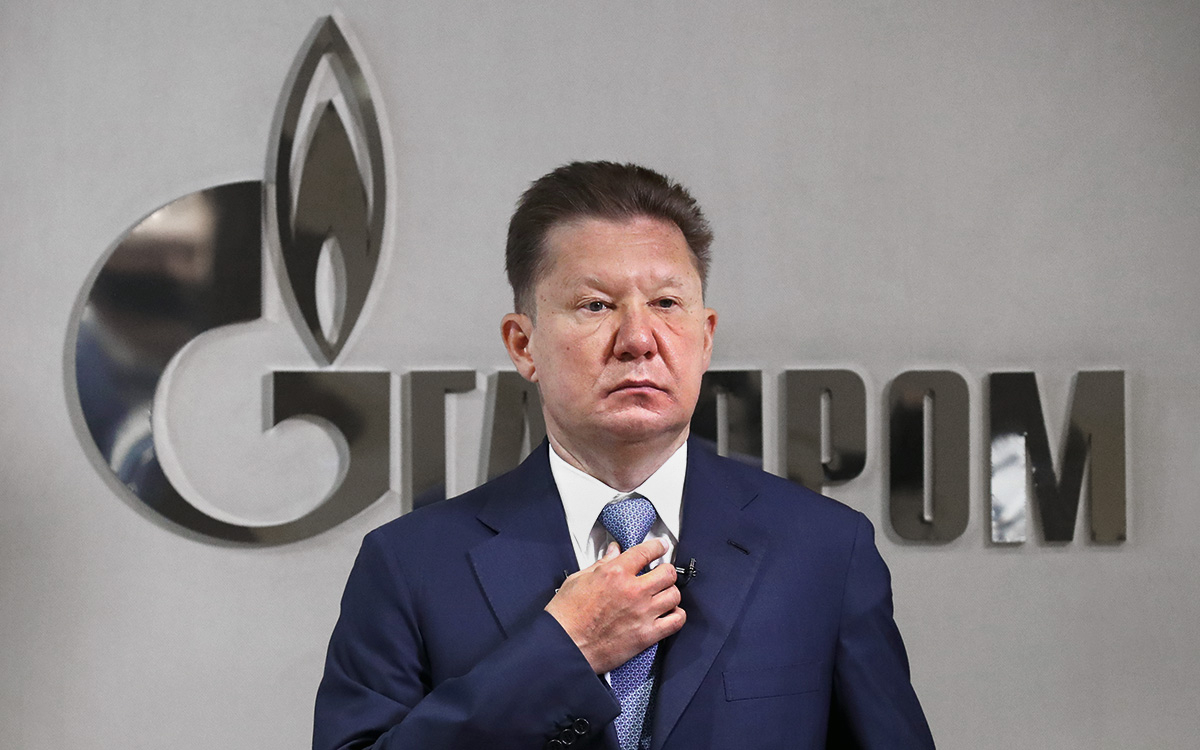
Some would argue that Russian courtiers call Putin the "Sovereign" ironically. I'm not so sure. I'd argue that these casua and not well thought remarks reflect their real way of thinking. Sovereignty is an attribute of the the Sovereign who is the only source of power in Russia 

The problem is not in Putin. The problem is in the quasi monarchic political structure of Russia. Therefore, this problem can not be solved by changing Putin to "someone better". It can be solved only by dismantling the system of imperial power entirely
Why is quasimonarchic culture so prevalent in Russia? Well, it all comes to leverage and incentives. Tsar's Court has leverage to obliterate anyone who raises a voce against them and they will use it. So others are incentivised to never object. That's why Russia is so obedient 

The entire discussion about whether the Russians "support" or "not support" the regime is insane. First, it treats Russia as something homogeneous. Second, it is based on assumption that raising a voice against the regime is even an option. It is not 

Yeah, theoretically supporting the regime or standing up against it are both free choices. In reality though there's a huge asymmetry here incentives-wise. You don't lose much by supporting the Kremlin or just shutting up. But if you stand up you can lose hella lot
That doesn't mean everyone will actually work hard for the regime. It just means that you won't see a public dissent of the elites because anyone who raises a voice will be selected out immediately. Any real dissent will go only in the form of silent sabotage
It's not gonna be open, idealistic and collective action that gonna destroy the Russian Federation. To the contrary, it gonna be the silent, pragmatic and individual actions by elites. Such as the growing economic protectionism of regions, breaking the national economic cohesion 

Dismantling the Russian empire is a necessary prerequisite for enfranchising the Russian people. "Support" of the regime is not so much a support as learnt helplessness due to anyone objecting to the Tsar's Court being destroyed. Thus destruction of a Court is necessary
*Any* politician who takes Putin's place in Kremlin will act much like Putin. Absolute power corrupts absolutely. Human beings of such integrity, selflessness and humility that won't be corrupted by the Tsar's power just don't exist 
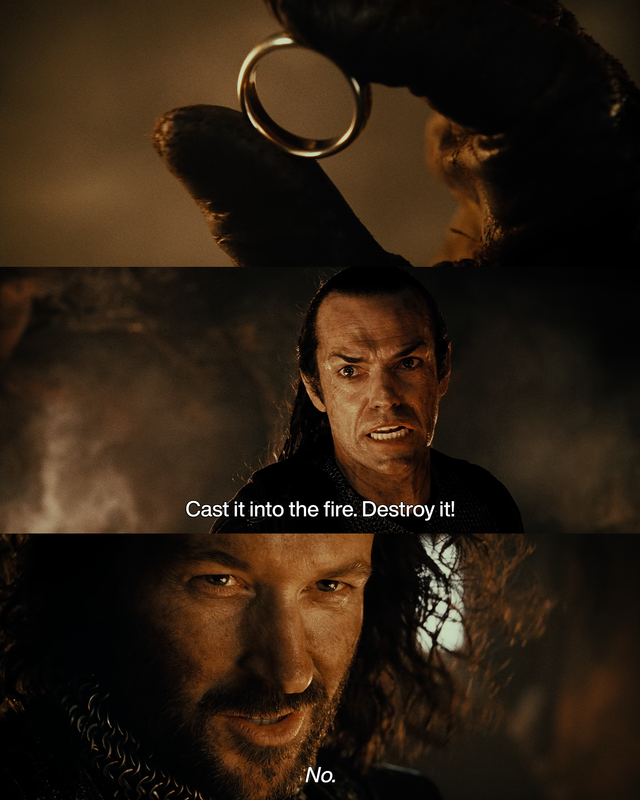
Tsar's power is based on the quasi-monarchic political culture in Russia. And the quasi-monarchic culture is based on anyone raising the voice against being crushed. The Tsar's Court has the leverage, others have an incentive to shut up. That's a vicious cycle. It must be broken
The only way to break it is for as may regions as possible breaking free, thus getting out of the reach of Kremlin. If you are independent, it becomes much harder for Kremlin to crush the dissent and silence other voices. That's a necessary prerequisite for enfranchisement
For some reason inconceivable to me, the potential dissolution of Russian Federation is being viewed purely through the ethnic lenses, as "minorities breaking away" and Russians staying under the agency-extirpating power of Kremlin. But Russians deserve agency, too. End of 🧵
• • •
Missing some Tweet in this thread? You can try to
force a refresh





